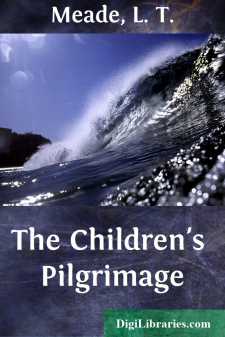Fiction
- Action & Adventure 180
- Biographical 15
- Christian 59
- Classics
- Coming of Age 5
- Contemporary Women 3
- Erotica 8
- Espionage/Intrigue 12
- Fairy Tales, Folklore & Mythology 236
- Family Life 169
- Fantasy 117
- Gay 1
- General 596
- Ghost 32
- Historical 808
- Horror 43
- Humorous 160
- Jewish 25
- Legal 4
- Medical 22
- Mystery & Detective 315
- Political 49
- Psychological 41
- Religious 64
- Romance 159
- Sagas 11
- Science Fiction 730
- Sea Stories 113
- Short Stories (single author) 537
- Sports 10
- Suspense 1
- Technological 8
- Thrillers 2
- Urban Life 31
- Visionary & Metaphysical 1
- War & Military 173
- Westerns 199
Classics Books
Sort by:
by:
Olof Krarer
INTRODUCTION. In writing this little book, it has been our constant aim to make it, as nearly as possible, an autobiography, giving Miss Krarer's own thoughts and words, avoiding some of the little errors, caused by her imperfect knowledge of English, which are thought by some to add a certain charm to her conversation. If, near the conclusion, I may seem to have departed from this plan, it is...
more...
by:
Horace Walpole
A SELECTION FROM THE LETTERS OF HORACE WALPOLE. MARRIAGE OF THE PRINCESS OF WALES—VERY LIVELY.[1] [Footnote 1: This letter, written before he was nineteen, is worth noticing as a proof how innate was his liveliness of style, since in that respect few of the productions of his maturer age surpasses it. It also shows how strong already was his expectations that his letters would hereafter be regarded...
more...
by:
George Young
The following account of events in Germany during the period from the Armistice to the Treaty of Versailles was written mostly in the summer of 1919. But the events of the succeeding period from the signature of the Treaty to its ratification during the autumn and winter call for no alteration and but little addition to the text. The six months hereinafter described from February to August were...
more...
On a day about mid-year in 1855, the conventional literary world was startled into indecorous behavior by the unannounced appearance of a thin quarto sheaf of poems, in form and in tone unlike anything of precedent issue. It was called Leaves of Grass, and there were but twelve poems in the volume. No author’s name appeared upon the title page, the separate poems bore no captions, there was no...
more...
by:
Unknown
PREFACE. For several years beginners in the Angora goat industry were without text books, and even to-day there are very few practical treatises. From our forty years of experience in farming Angoras, and from the personal observations of our Dr. W. C. Bailey, while in the interior of Asia Minor, we have tried to select the essential points in the successful management of Angora flocks, and to present...
more...
by:
L. T. Meade
CHAPTER I. "THREE ON A DOORSTEP." In a poor part of London, but not in the very poorest part—two children sat on a certain autumn evening, side by side on a doorstep. The eldest might have been ten, the youngest eight. The eldest was a girl, the youngest a boy. Drawn up in front of these children, looking into their little faces with hungry, loving, pathetic eyes, lay a mongrel dog. The three...
more...
by:
Laura Lee Hope
CHAPTER I AUNT LU ARRIVES "Bunny! Bunny! Wake up! It's time!" "Wha—what's matter?" sleepily mumbled little Bunny Brown, making his words all run together, like molasses candy that has been out in the hot sun. "What's the matter, Sue?" Bunny asked, now that he had his eyes open. He looked over the side of his small bed to see his sister standing beside it. She...
more...
by:
Seumas O'Kelly
THE CAN WITH THE DIAMOND NOTCH I [Illustration: Festus Clasby] The name stood out in chaste white letters from the black background of the signboard. Indeed the name might be said to spring from the landscape, for this shop jumped from its rural setting with an air of aggression. It was a commercial oasis on a desert of grass. It proclaimed the clash of two civilisations. There were the hills, pitched...
more...
by:
A. G. Riddle
CHAPTER I. A FAILURE. He could see from the top of the hill, down which the road wound to the river, that the bridge was gone, and he paused for a moment with an involuntary feeling that it was useless to go forward; but remembering that his way led across, at all events, he walked down to the bank. There it ran, broad, rapid, and in places apparently deep. He looked up and down in vain: no lodged...
more...











